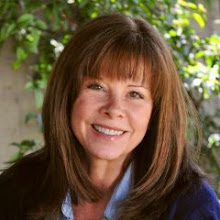
April, 2010
I once read a review of a 19th-century production of "Macbeth" wherein the critic praised the show as being "the most realistic" he'd ever seen. The writer went on to give an example of stage "realism" when he described Macbeth's sighting of Banquo's ghost in the dinner scene.
Apparently the director and designers thought a terrific idea would be for the actor playing Macbeth to wear a bright red wig — the character is Scottish, after all — and attached to this hairpiece would be two long strings traveling down the inside the actor's sleeves, rigged to his middle fingers.
Enter GHOST.MACBETH Avaunt! and quit my sight! let the earth hide thee!
Thy bones are marrowless, thy blood is cold;
Thou hast no speculation in those eyes
Which thou dost glare with!.Macbeth Act III, Scene IV
 Yikes! When Macbeth saw the ghost, the actor tugged the strings and straight up went the scarlet woolly locks, pointing to the ceiling. I'm kicking myself for not coming up with this highly realistic concept. Ronald McDonald, look out: perfect casting.
Yikes! When Macbeth saw the ghost, the actor tugged the strings and straight up went the scarlet woolly locks, pointing to the ceiling. I'm kicking myself for not coming up with this highly realistic concept. Ronald McDonald, look out: perfect casting."Okay, here’s the thing, when the audience comes to see our 'Macbeth,' they will know they're really in our school auditorium and not actually on a heath in Scotland."
Blink, blink, blinkety-blink.
"And they're going to know the crown isn't real gold with real jewels or our swords aren't really sharp metal."
 Where is this going? is written all over their faces.
Where is this going? is written all over their faces."So, we have to give the audience something real to make the experience worth their while. What do you think that is?"
"Like, you mean our feelings?" asks Garth.

"Kind of like that. It's what goes on between you as actors. That's the real thing. When Lady Macbeth is fed up with Macbeth for being a big chicken, that's real. And when Macduff is furious at Macbeth for murdering his family, that's real. When you really speak to each other, you make the audience sit up and listen. Then you're giving them their money's worth. Make sense?"
We'll see how much sense that makes.


What it means to be a best friend is helping, not telling there secrets, and if they do something terrible I would tell. My responsibility as a best friend is to listen to what they are triening to say, and respectful Yes, I know you shouldn't tell on your best friend but, if they're doing something irresonsable you kind of have to.







No comments:
Post a Comment
Note: Only a member of this blog may post a comment.